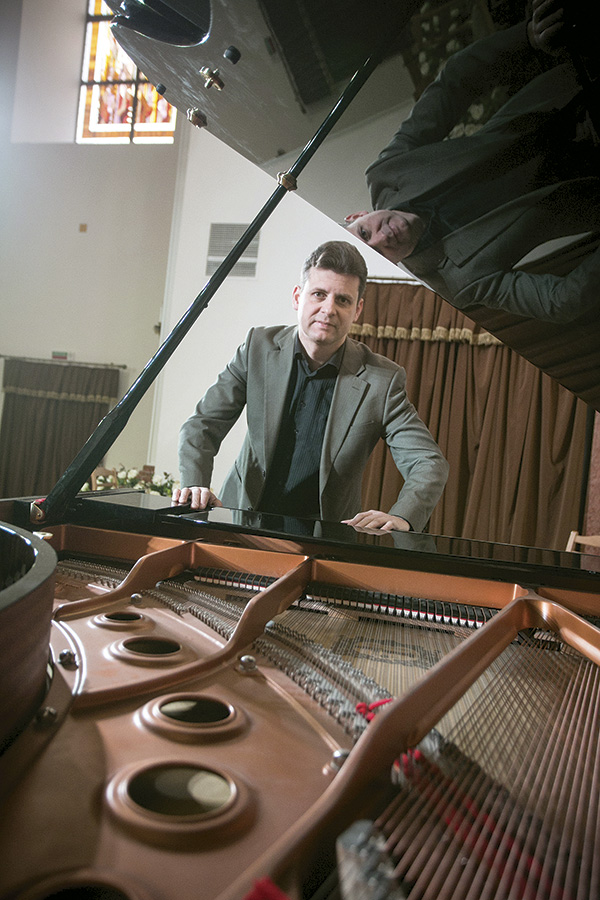
Pianist Yuri Blinov
Our MT reporter meets Mr. Blinov, discussing how his music is inspired by sport, how to transform the town of Drogichin into a musical capital and what efforts are needed to find sponsors for art projects.
Yuri, what inspired you to present your own composer programme?
Having learnt how to compose music and toddle almost simultaneously, I felt slightly embarrassed that most of my artistic energy was being spent on playing and the rest on teaching and public activity. I understood that I needed to show my talent as a composer, and not merely as a performer. Last summer, I decided to collect my compositions and complete unfinished pieces, to later present them at the Belarusian State Philharmonics’ composers’ party.
Your programme is unusual. What hides behind its title of Concerto Krooso for piano, string orchestra, percussion and whistle?
It’s an ancient genre of ‘concerto grosso’. In the title, I refer to the famous German footballer Toni Kroos. I’m an old and ardent football fan and, during the recent World Championship, had the idea of combining classical music with professional football, to see what might happen. Expansive, beautiful and serious work was the result: an epic poem on life and play.
Another idea came to mind while running (I love jogging, and covered a 21km semi-marathon in October, at the 30th Munich Marathon). I’d composed ten pieces for the piano, using various techniques. I entitled it ‘Decathlon’ and, later, found that our famous decathlete Andrey Kravchenko celebrates his birthday in January, so I decided to dedicate my series to him. It’s small, but truly gorgeous and complex.
You’ve performed and lectured abroad a great deal. How does Belarusian musical training differ?
Primarily, I’d say that students abroad often have huge aspirations, but lack technical accomplishment. However, they know when a certain piece was composed and the thinking behind it, which is often lacking in Belarus. Our schooling works well at elementary level, when 5-6 hours a day are devoted to gamuts, arpeggio and finger exercises. Everything is lively. However, problems emerge later, as students cannot express the meaning behind music, its style and genre. Modern students have a narrow cultural outlook. I’ve often seen young people fail to understand my lectures devoted to German romantic poetry or impressionism in pictorial art.
You’re trying to support young performers…
I recently organised an international contest of young musicians, called ‘Paleski Agenchik’ (Polesie Fire), in Drogichin (my native town, to which I still boast close ties). The idea came unexpectedly, thanks to two coinciding events. Our musical school moved to а new building and my friend and colleague, globally known pianist Boris Blokh, arrived from Germany seeking tranquillity. He told me that he’d love to return and I at once suggested that we organise a contest, with him heading the jury. We chose two nominations: piano and button accordion (our national instrument). As far I know, no other contest worldwide has offered such a combination. People came to Drogichin with great pleasure and our first event gathered over 200 participants.
Any contest needs funding, so how did you solve the problem?
We were partially supported by Brest Regional Executive Committee and partially by Drogichin District Executive Committee, with the remaining sum coming from sponsors, entry fees, and tickets to our opening and closing concerts.
Times are hard. Do you plan to cease your contest organisation?
‘Paleski Agenchik’ takes place every two years and we’re already accepting applications. We’ve added a third nomination: composition, to be chaired by Sergey Kortes. Even our first event gathered participants from neighbouring states, including Poland, Russia, Lithuania and Ukraine. China has promised to come this time. With this in mind, there’s no need to cease: on the contrary, our geography is expanding.
By Irina Ovsepyan











